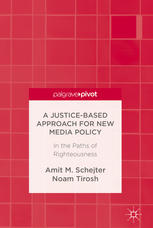

Most ebook files are in PDF format, so you can easily read them using various software such as Foxit Reader or directly on the Google Chrome browser.
Some ebook files are released by publishers in other formats such as .awz, .mobi, .epub, .fb2, etc. You may need to install specific software to read these formats on mobile/PC, such as Calibre.
Please read the tutorial at this link: https://ebookbell.com/faq
We offer FREE conversion to the popular formats you request; however, this may take some time. Therefore, right after payment, please email us, and we will try to provide the service as quickly as possible.
For some exceptional file formats or broken links (if any), please refrain from opening any disputes. Instead, email us first, and we will try to assist within a maximum of 6 hours.
EbookBell Team

5.0
50 reviewsIn this book, distributional justice theories developed by John Rawls and Amartya Sen are applied to the governance of today’s media, proposing a fresh, and innovative assessment of the potential role for media in society. Three case studies describe the utilization of new media by marginalized communities in Israel – Ethiopian immigrants, the Bedouin and Palestinians – and set the stage for media policy scholars, teachers and students to discuss an analytic framework for media policy that is fresh, different, innovative and original. Departing from the utilitarian principles that dominate Western liberal regimes, and that have led to the proliferation of media systems in which control is concentrated in the hands of the few, this work proposes an alternative that focuses on redistributing power and voice.